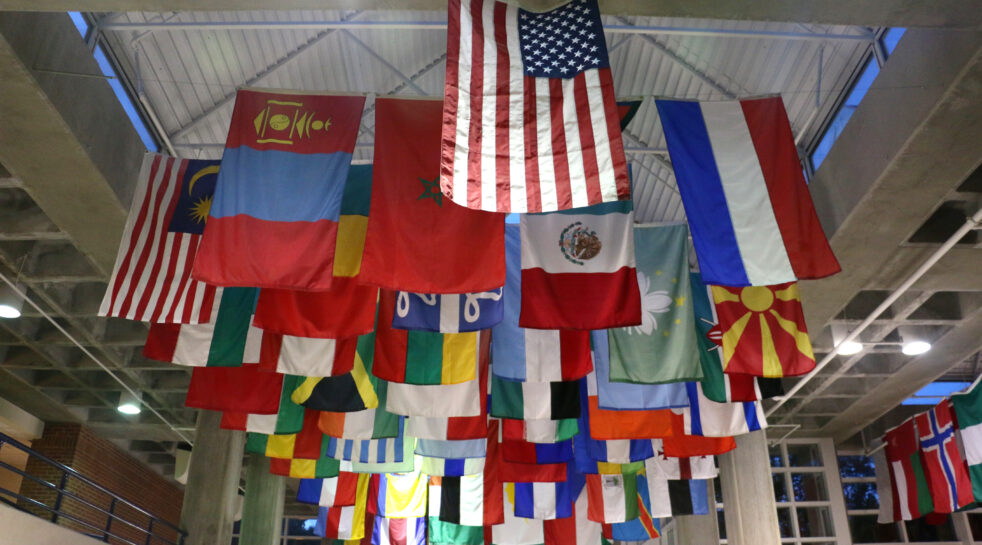With 23% of Tech’s student demographic consisting of international students, nearly a quarter of the total student body now faces the possibility that they might not be able to call Midtown Atlanta their home for the upcoming semester.
As students were celebrating the minor victory of the University System of Georgia (USG) mandating the use of face coverings on campuses, they were hit by another hurdle going into the fall, this time on a national level. On Monday, July 6, the Student and Exchange Visitor Program (SEVP) announced new regulations regarding international students returning to the states for the fall semester per U.S. Immigration and Customs Enforcement (ICE) modifications.
According to ICE’s announcement, “The U.S. Department of State will not issue visas to students enrolled in schools and/or programs that are fully online for the fall semester nor will U.S. Customs and Border Protection permit these students to enter the United States. Active students currently in the United States enrolled in such programs must depart the country or take other measures, such as transferring to a school with in-person instruction to remain in lawful status.”
Students enrolled in schools with normal in-person classes may only take a maximum of three credit hours, or one class, online. Students that are enrolled in “schools adopting a hybrid model — that is, a mixture of online and in person classes — will be allowed to take more than one class or three credit hours online.”
While Tech has announced that campus will be opening in the fall and welcoming students back, the delivery mode of classes is yet unknown until July 20, leaving many students nervous regarding their status in the country and with little time to enroll in in-person classes if need be.
In response, students have created a petition for Tech to create a one-credit course for international students, allowing them an exception to stay in the country given the hybrid model of teaching planned for the fall.
A rising fourth-year CS major, who wishes to remain anonymous, is one of the many international students from Tech who remained in Atlanta following the closing of campus but now faces the possibility of deportation and being sent back home.
“It was pretty shocking, and added an even more uncertainty to my plans in this environment. The initial reaction was one of panic, but also at the same time a lot of frustration … I don’t even know who I’d ask questions about this to, since both GT and ICE’s guidelines are very new to OIE as well, and given the short window that exists between now and planning for the semester, I feel like a lot of students currently feel helpless.”
Another rising fifth-year CS major, who also wishes to remain anonymous, left the U.S. following the closing of campus and is currently at home with his family but worries about the status of his return.
“I found it pretty surprising in my mind that all this time I’ve been advocating for the option to stay remote if students want but suddenly I’m on the side of students who want to come back should be able to. I suppose they’re the same: the freedom to make the decision either way. Being away for even longer can affect recruitment, mental health, finances, and so many more factors, and it’s simply a lot to process and has taken time to digest.”
When classes first transitioned to a remote format in the spring, some of the main obstacles college students faced were Wi-Fi accessibility and the lack of a quiet learning environment, but for international students, they faced these plus the added obstacles of time-zone differences, travelling home and more.
Currently unaware about the status of the classes they enrolled in during Phase I registration, students are left with the possibility of either taking in-person classes and exposing themselves to the spread of COVID-19 or being forbidden from entering the States because of a fully remote course load.
“Tech usually sends out clarifying emails following executive orders and major updates like this so I’m patiently waiting on that to inform my travel and long-term plans for this semester,” said the fifth-year student.
If international students are not allowed back into the country this fall, they will continue to face these existing issues but will also be faced with the dilemma of changing their academic plans depending on whether the courses they need to fulfill requirements are available in a remote format. Campuses as a whole also face the possibility of returning to a completely remote format at any minute’s notice given the continued spread of COVID-19 in Georgia, putting international students at risk of having to return to their home countries even if they do manage to make it back to campus.
“Personally, to avoid getting deported in the middle of the semester, I’m pushing to get my current internship extended to the fall, and I’m just trying my best to wait it out until things settle down. It’ll push my graduation, yes, but I’m willing to take that over a sword hanging on my head every day I’m present in Atlanta in person hoping covid cases don’t rise on campus and instruction goes online inevitably,” said the fourth-year student.
When the Technique called the Office of International Education (OIE) for a comment, they did not answer. A recording said that they are currently not taking phone calls but can be contacted through email at [email protected].
“This is my last semester and I have a lot of goodbyes to say to my other graduating friends. It would be a shame to have that taken away but the most anyone can do now is wait until July 20th for the course mode listings and proceed from there,” said the fifth-year student.
